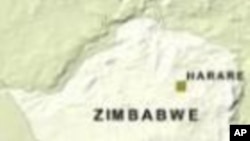Independence Day anniversaries in most countries are national holidays, but in Zimbabwe this year there is little to celebrate. April 18 marked the 28th year since that African nation gained full self-determination from Britain, but the promise of a prosperous, democratic state remains unfulfilled.
Three weeks after national elections, the government refuses to release the presidential vote. According to independent tallies conducted by Zimbabwean civil society, a majority of voter’s rejected President Robert Mugabe’s party. As the stalemate drags on, there are increasing reports of arrests, beatings and intimidation of opposition supporters and others. Press freedoms are stifled and the government accused Mr. Mugabe’s challenger, Morgan Tsvangiri, of treason. As the political crisis continues, Zimbabwe’s serious economic problems go unaddressed.
“Sadly, as Zimbabwe celebrates its 28th birthday, what should be a proud and joyful day for Zimbabweans is overshadowed by uncertainty and fear,” said U.S. Ambassador James D. McGee.
U.S. Secretary of State Condoleezza Rice has expressed similar concerns and called on Zimbabwe’s neighbors to address the crisis by taking steps to help resolve it. The African Union, the Southern African Development Community and other regional organizations must take the lead in finding a peaceful and democratic resolution to this crisis. The will of the Zimbabwean people must be respected.












